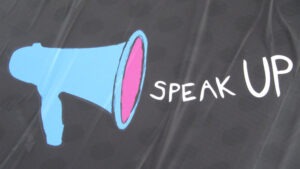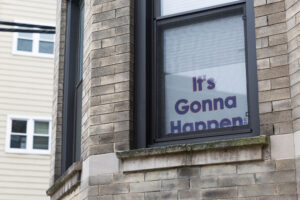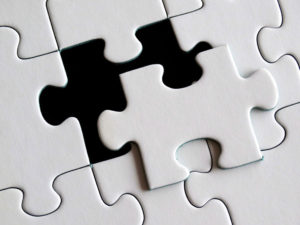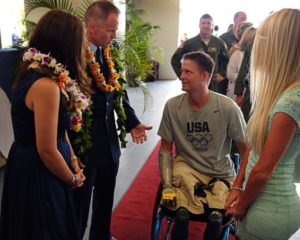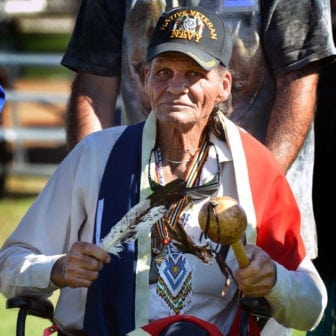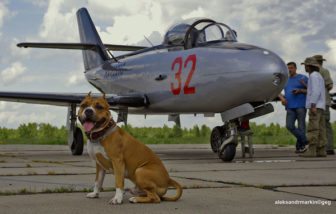September 24, 2016, Military Times
Barack Obama is the longest wartime president in U.S. history. As unprecedented numbers of military families are taking on unanticipated caregiving roles at home, there is a community gathering to offer them wisdom, advice, and support. Caregiving for the elderly and chronically ill and for children with special needs is relatively commonplace. Military caregivers are entering into uncharted territory. The Military and Veteran Caregiver Network (MCVN) is changing that.
Founded in 2014 in response to the Hidden Heroes report described below and run by and for military caregivers, MCVN has over 100,000 online members, and it partners with over 200 organizations. Bristol-Myers Squibb provided seed money. MCVN also offers a resource library, a caregiver master calendar, and the free WeCare online magazine.
A new MCVN Peer Mentor Support Program trains experienced caregivers to serve as mentors for those new to the role. Mentors receive eight hours of training, including self-paced courses and group trainings. Once trained, mentors are matched online with families requesting support.
Sign up for our free newsletters
Subscribe to NPQ's newsletters to have our top stories delivered directly to your inbox.
By signing up, you agree to our privacy policy and terms of use, and to receive messages from NPQ and our partners.
Senator Elizabeth Dole knows what it is to be a military caregiver. Her foundation funded the RAND report, Hidden Heroes: America’s Military Caregivers (2014), which showed that there are more than 22.6 million caregivers in the U.S. Approximately 5.5 million families care for disabled veterans, more than 1 million being Iraq and Afghanistan veterans. The report found that “over half of military and veteran caregivers possess no network of peer support. This lack of support results in isolation, which contributes to declining personal health outcomes, greater strains on family relationships and workplace issues.” The National Academies of Sciences, Engineering and Medicine just produced a new report affirming the needs of these caregivers.
The RAND report makes these observations and recommendations:
- The need for long-term planning is likely more pronounced for post-9/11 military care recipients, who are younger and may be more vulnerable than pre-9/11 and civilian care recipients, particularly those relying on aging parents and in new marriages. Critical aspects of planning include financial, legal, residential, and vocational/educational planning.
- Post-9/11 caregiver duties can be estimated as worth close to $3 billion (in 2011 dollars); the costs of lost productivity among post-9/11 caregivers are $5.9 billion (in 2011 dollars).
- Ensuring the long-term wellbeing of caregivers and the agencies that aim to support them may each require efforts to plan strategically for the future, not only to serve the dynamic and evolving needs of current military caregivers, but to anticipate the needs of future military caregivers in a changing political and fiscal environment.
The Elizabeth Dole Foundation recently announced that on September 27th, it is launching an awareness campaign, also called Hidden Heroes. Tom Hanks is serving as campaign chair. Tom Brokaw and other notable public and private sector leaders are lending their support to the campaign. A Hidden Heroes Fund is being established to raise $10 million to support military family caregivers.
Thrust into a daunting and unexpected role that usually means a downshifting of career and ambition, most new caregivers find themselves (to their dismay) lost in the complicated, illogical, and often contradictory world of healthcare, along with countless other challenges that turn their world upside down. The emotional fallout alone can be devastating, but MCVN mentors and a network of more than 100,000 fellow caregivers are there to offer their hard-won wisdom and to deliver the message that it need not be that way. The mentors can reaffirm emotional connections worn thin by the routine of daily care and help families avoid burnout.—James Schaffer


